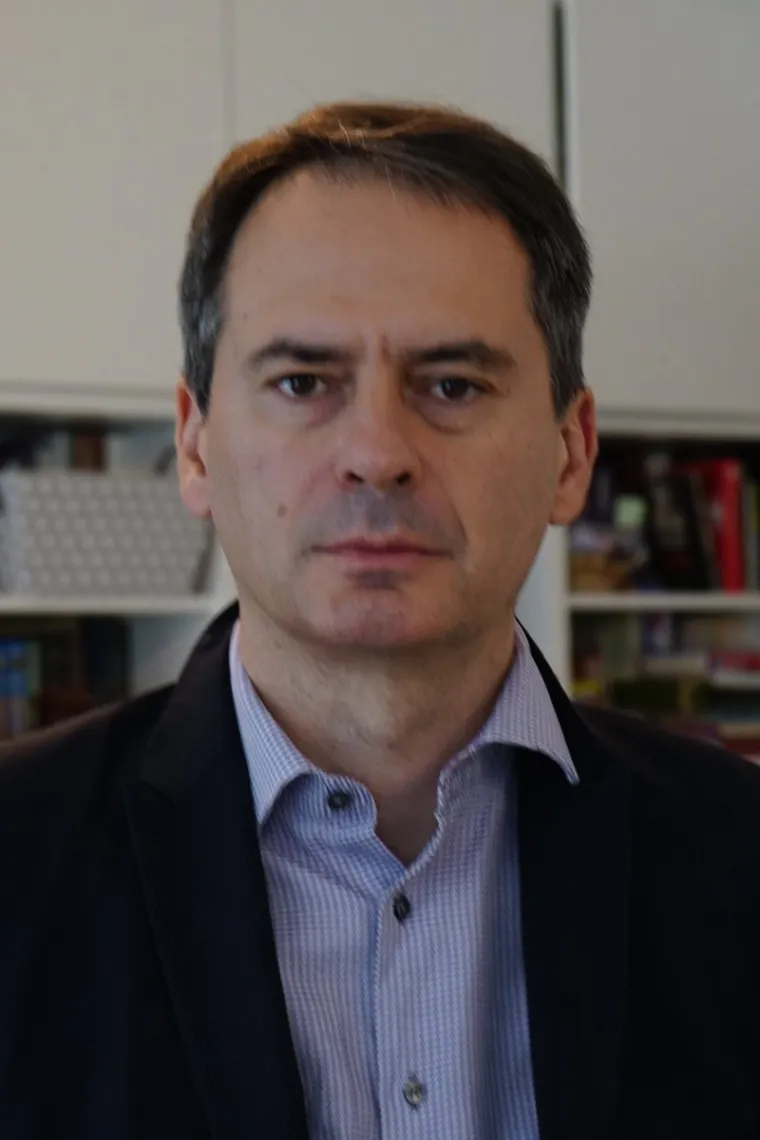Paris, April 27, 2023—Russian authorities should immediately drop all charges against journalist Christo Grozev and stop seeking to arrest independent journalists in retaliation for their reporting, the Committee to Protect Journalists said Thursday.
On April 21, during a closed-door hearing, a court in Moscow ordered Grozev’s arrest for allegedly crossing the Russian border illegally, according to multiple news reports and Grozev, who communicated with CPJ via Twitter.
The court classified Grozev, a foreign national who never worked or lived in Russia, as “arrested in absentia,” meaning he would be immediately detained if he traveled to Russia or if he traveled in a country that could extradite him to Russia, those reports said. The court ordered Grozev, who heads the Netherlands-based investigative outlet Bellingcat, to be held for two months if he returned to Russia or was extradited to Russia; if convicted of crossing the border illegally, he could face up to two years in prison.
Also, on April 21, the Russian Ministry of Justice labeled Grozev a “foreign agent.”
“By arresting journalists in absentia, Russian authorities are lashing out at those who report independently on the country from beyond its borders,” said Gulnoza Said, CPJ’s Europe and Central Asia program coordinator, in New York. “Russian authorities must immediately drop all charges against Bellingcat journalist Christo Grozev, as well as all members of the press who have already been arrested in absentia, and stop such cynical moves aimed at intimidating independent journalists.”
Authorities allege that Grozev helped Roman Dobrokhotov, founder of the international investigative outlet The Insider, cross the border between Russia and Ukraine in August 2021 following raids by the Russian Federal Security Service, or FSB, on Dobrokhotov and his parent’s homes, during which the authorities seized his passport, according to Grozev and those reports.
“Instead of waiting for the FSB to come back and charge him with whatever they could invent after hacking into his work computer, he simply crossed the border on foot,” Grozev said, adding that he did not help Dobrokhotov. “He simply exercised his right of free movement to avoid unlawful persecution and possibly torture. There was no formal charge that prohibited his travel, and he was in possession of a valid national ID.”
In July 2022, the FSB claimed Grozev was involved in a plan by Ukrainian special services to hijack a Russian combat aircraft, which Grozev denied. In December 2022, the Russian Ministry of the Interior put Grozev on the country’s international wanted list in connection to alleged border crossing offense.
Bellingcat is known for its high-profile investigations, including of the MH17 crash in eastern Ukraine and the poisoning of jailed Russian opposition leader Alexei Navalny. Russian authorities previously labeled the outlet a foreign agent and an “undesirable organization.”
Russian authorities arrested at least six other journalists in absentia in the last year:
- In May 2022, Russian authorities arrested in absentia Ruslan Leviev, founder of the Russian independent investigative project Conflict Intelligence Team, and video blogger Michael Nacke.
- In August, Dobrokhotov was arrested in absentia for allegedly illegally crossing the Russian border.
- In November, a court in Kazan, the capital of Russia’s Republic of Tatarstan, arrested in absentia Andrei Grigoriev, a reporter for U.S. Congress-funded RFE/RL’s Russia project Idel.Realii, on charges of justifying terrorism, according to media reports.
- On March 16, 2023, a Moscow court arrested in absentia Ilya Krasilshchik, former publisher of the independent news website Meduza and founder of the independent media project HelpDesk for allegedly spreading false information about the Russian army.
- On March 27, the same court arrested in absentia Pyotr Verzilov, a publisher of the independent news website Mediazona, in connection to posts on social media about a massacre in the Ukrainian city of Bucha, his outlet and media reported.
CPJ emailed the Russian Ministry of Justice for comment but did not immediately receive a response.
